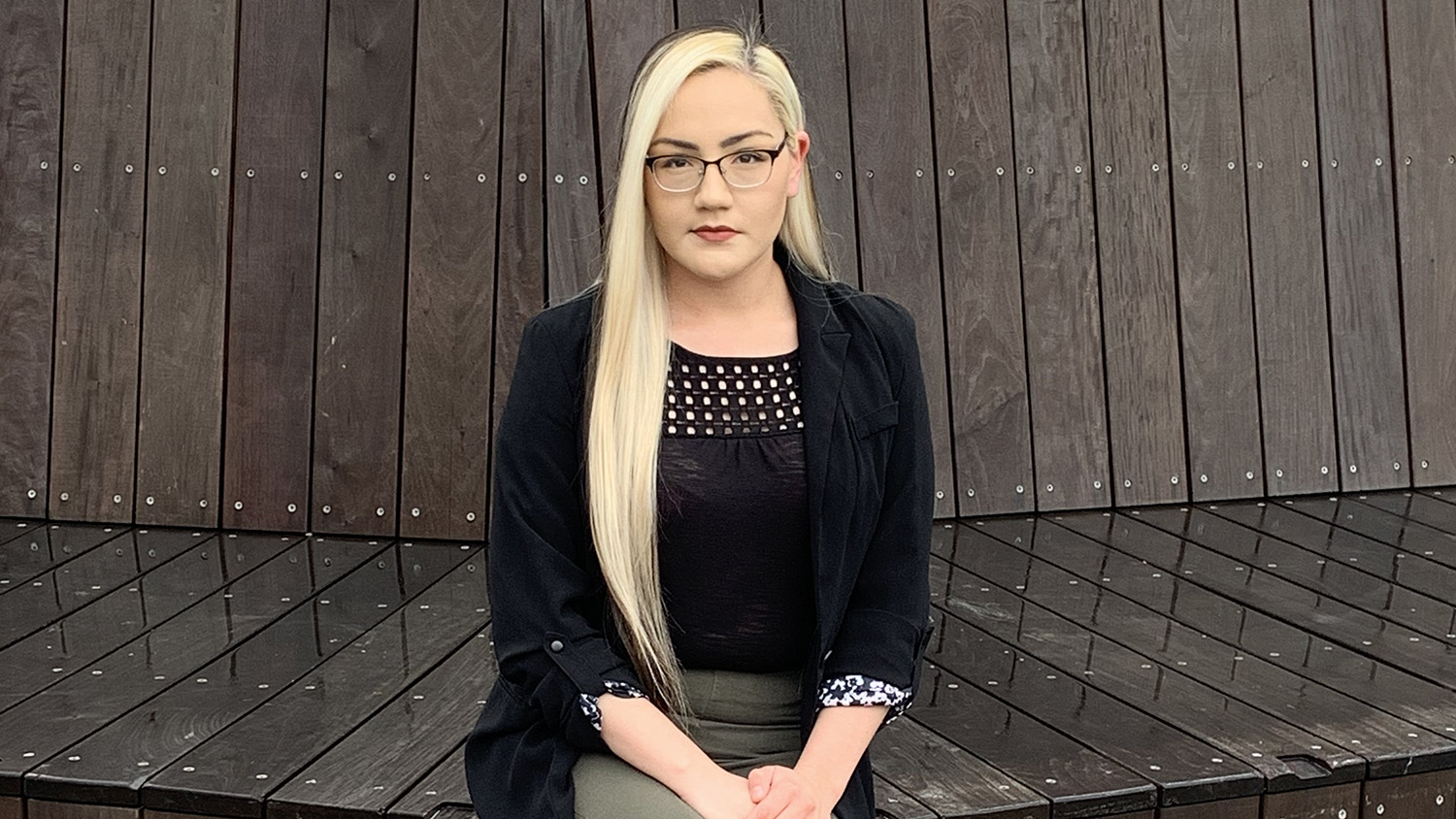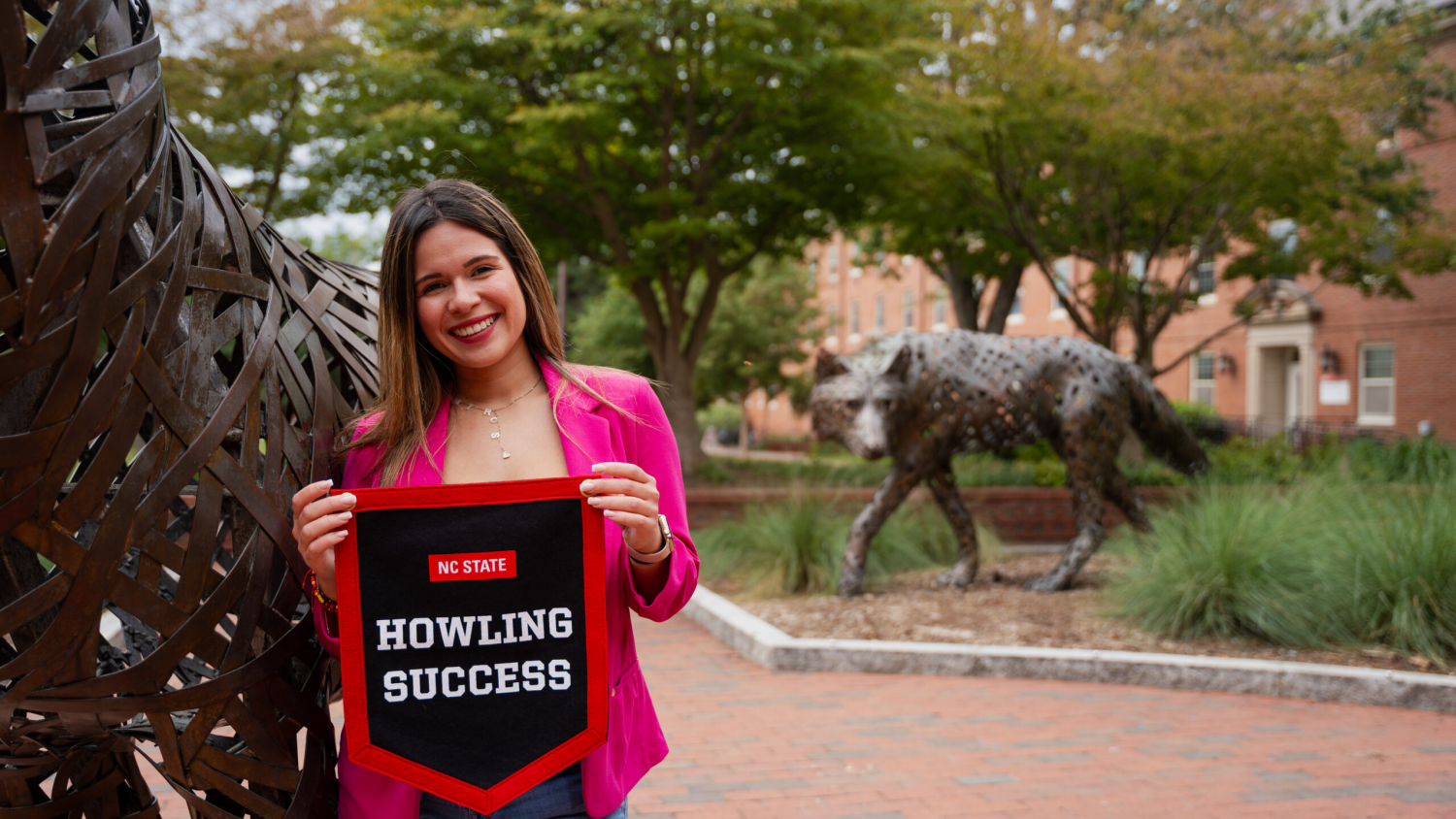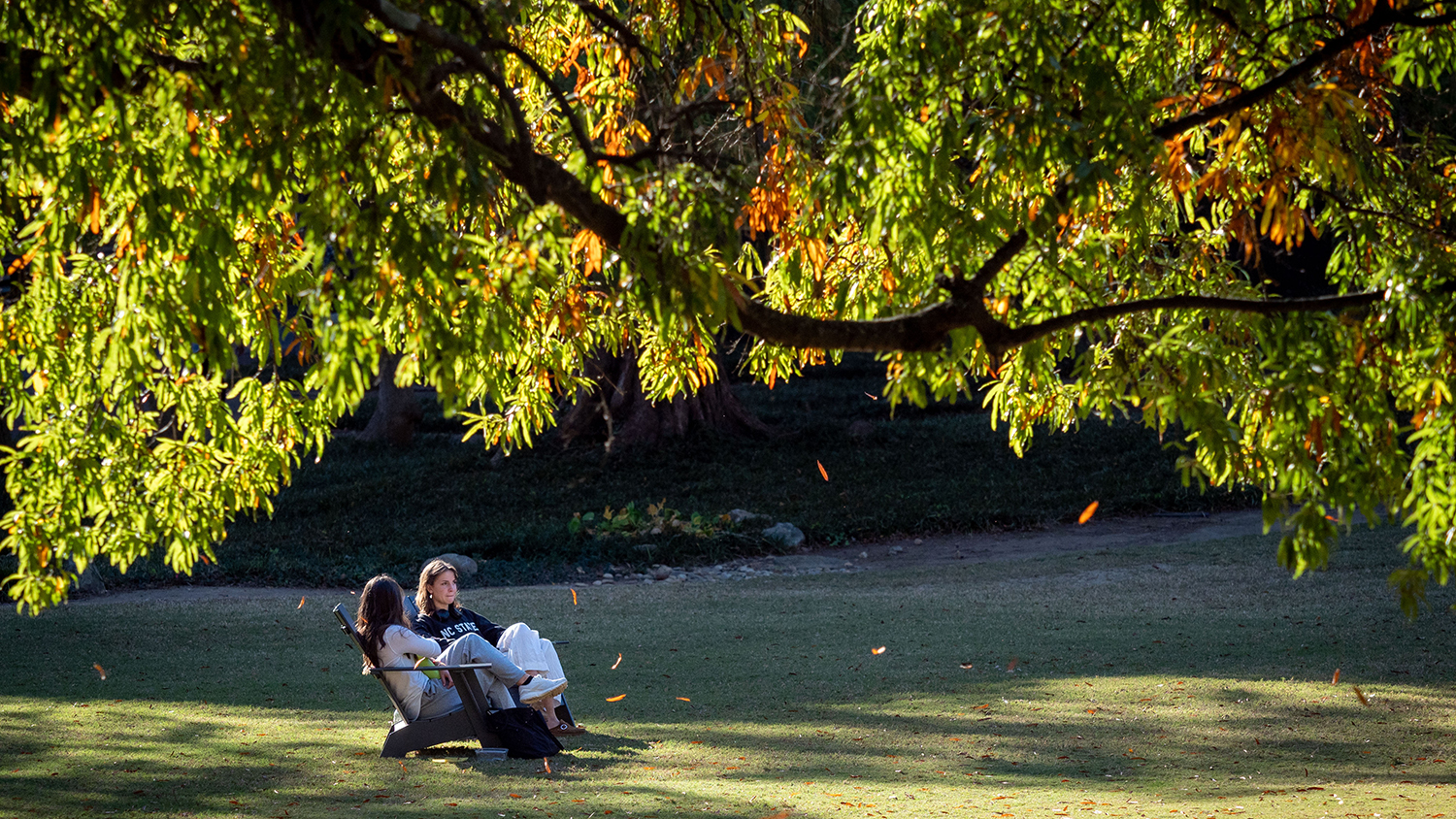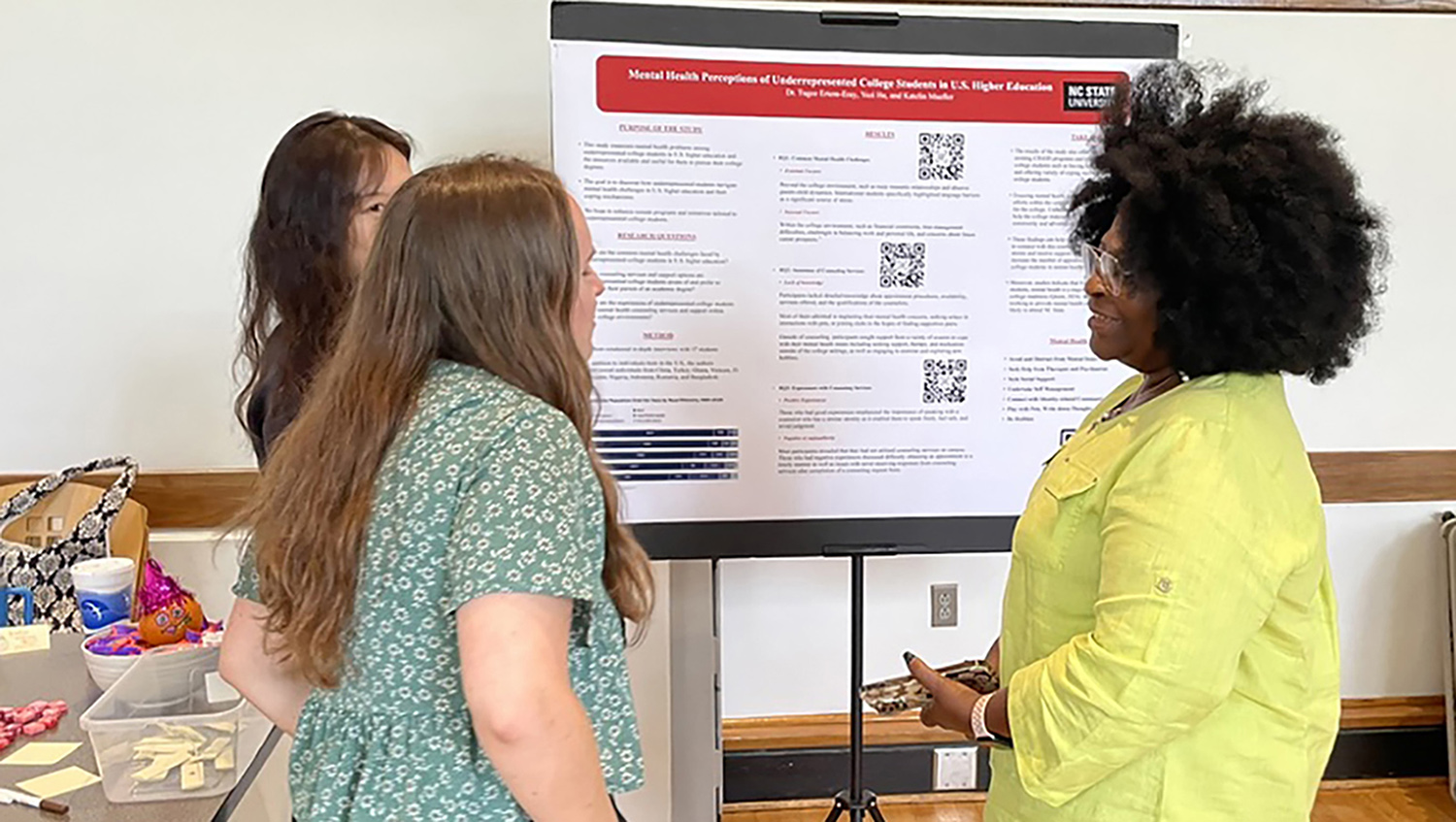Meet Julie Penaloza, an international studies major who also works full-time as a clinical service technician in WakeMed’s pathology department. Learn more about her job and how she balances and applies her coursework.
What are some of your primary job responsibilities at WakeMed?
As a clinical service technician, I interact with and collect various specimens from patients and prepare the specimens for different tests by laboratory staff in our pathology department or in outside facilities. I am also involved with COVID-19 testing — preparing samples from patients in the hospital and some sent to us from outpatient clinics.
What are the challenges and rewards of your work at WakeMed?
One of the most challenging parts of working at WakeMed is the hours. The hospital is open 24/7, 365 days a year, regardless of weather or the pandemic. The most rewarding part of my job is that all employees are helping patients and saving lives.
Why did you choose to major in International Studies?
An international studies major gives me the flexibility to study a bit of everything. I can analyze global issues using theoretical subjects, and study cultures through art, literature and language.
How do you juggle your job and your studies?
As a full-time student, balancing work and school is extremely difficult and, at times, overwhelming. Working at the hospital, however, I learned to be patient and always remain calm. I also have an understanding supervisor who is willing to adjust my hours to accommodate work and school.
Like many students, I am taking virtual courses because of the pandemic. So, working at WakeMed is not only my job; it has become my classroom.
What is your favorite part of your job?
I like the versatility of my position — communicating with doctors and nurses and providing some care to patients. But, the absolute favorite part of my job is processing specimens. It beats watching medical shows or reviewing forensic files. It is live-action.
What have you learned from your job and how will it enrich your academic experience?
I realized that for a hospital to operate, it requires people working in many different positions and offers various career paths. I also learned that you should be passionate about what you choose to do.
What’s next for you? How do you plan to use your degree and experience in the future?
After I finish my undergraduate degree, I hope to earn a master’s degree in international studies. While I may pursue a career in a hospital setting, I am open to working for the government. I want my work to have a positive impact on people.
- Categories:



